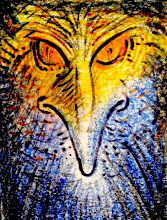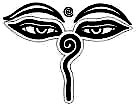
In Plato’s still radical book Republic, the first work of systematic political science and one of the greatest works of philosophy every conceived, Plato articulates a scientific-rationalist and political critique of the arts that still holds sway over popular cultural and institutional beliefs about the cognitive and ethical shortcomings of art and the artistic life. In fact, Plato offers a challenge to all future artists in that argument, to justify themselves as a form of human culture. A contemporary artist struggling to make sense of the value of her creativity could do worse than trying to articulate a response to the most incessant and powerful of all dead white males. The following excepted dialogue is a conversation between Socrates and Glaucon from Plato’s Republic, Book 10 where Plato states his case against artistic perception and creativity.
•
Of he many excellences which I perceive in the order of our State, there is none which upon reflection pleases me better than the rule about poetry.
To what do you refer?
To the rejection of imitative poetry, which certainly ought not to be received; as I see far more clearly now that the parts of the soul have been distinguished.
What do you mean?
Speaking in confidence, for I should not like to have my words repeated to the tragedians and the rest of the imitative tribe --but I do not mind saying to you, that all poetical imitations are ruinous to the understanding of the hearers, and that the knowledge of their true nature is the only antidote to them…
You may look at a bed from different points of view, obliquely or directly or from any other point of view, and the bed will appear different, but there is no difference in reality. And the same of all things.
Yes, the difference is only apparent.
Now let me ask you another question: Which is the art of painting designed to be --an imitation of things as they are, or as they appear --of appearance or of reality?
Of appearance.
Then the imitator, I said, is a long way off the truth, and can do all things because he lightly touches on a small part of them, and that part an image. For example: A painter will paint a cobbler, carpenter, or any other artist, though he knows nothing of their arts; and, if he is a good artist, he may deceive children or simple persons, when he shows them his picture of a carpenter from a distance, and they will fancy that they are looking at a real carpenter…
And the same object appears straight when looked at out of the water, and crooked when in the water; and the concave becomes convex, owing to the illusion about colours to which the sight is liable. Thus every sort of confusion is revealed within us; and this is that weakness of the human mind on which the art of conjuring and of deceiving by light and shadow and other ingenious devices imposes, having an effect upon us like magic.
True.
And the arts of measuring and numbering and weighing come to the rescue of the human understanding-there is the beauty of them --and the apparent greater or less, or more or heavier, no longer have the mastery over us, but give way before calculation and measure and weight?
Most true.
And this, surely, must be the work of the calculating and rational principle in the soul…
But we have not yet brought forward the heaviest count in our accusation: --the power which poetry has of harming even the good (and there are very few who are not harmed), is surely an awful thing?
Yes, certainly, if the effect is what you say.
Hear and judge: The best of us, as I conceive, when we listen to a passage of Homer, or one of the tragedians, in which he represents some pitiful hero who is drawling out his sorrows in a long oration, or weeping, and smiting his breast --the best of us, you know, delight in giving way to sympathy, and are in raptures at the excellence of the poet who stirs our feelings most.
Yes, of course I know.
But when any sorrow of our own happens to us, then you may observe that we pride ourselves on the opposite quality --we would fain be quiet and patient; this is the manly part, and the other which delighted us in the recitation is now deemed to be the part of a woman.
Very true, he said.
Now can we be right in praising and admiring another who is doing that which any one of us would abominate and be ashamed of in his own person?
No, he said, that is certainly not reasonable.
And the same may be said of lust and anger and all the other affections, of desire and pain and pleasure, which are held to be inseparable from every action ---in all of them poetry feeds and waters the passions instead of drying them up; she lets them rule, although they ought to be controlled, if mankind are ever to increase in happiness and virtue…
And now since we have reverted to the subject of poetry, let this our defense serve to show the reasonableness of our former judgment in sending away out of our State an art having the tendencies which we have described; for reason constrained us. But that she may impute to us any harshness or want of politeness, let us tell her that there is an ancient quarrel between philosophy and poetry; of which there are many proofs, such as the saying of 'the yelping hound howling at her lord,' or of one 'mighty in the vain talk of fools,' and 'the mob of sages circumventing Zeus,' and the 'subtle thinkers who are beggars after all'; and there are innumerable other signs of ancient enmity between them. Notwithstanding this, let us assure our sweet friend and the sister arts of imitation that if she will only prove her title to exist in a well-ordered State we shall be delighted to receive her --we are very conscious of her charms; but we may not on that account betray the truth. I dare say, Glaucon, that you are as much charmed by her as I am, especially when she appears in Homer?
Yes, indeed, I am greatly charmed.


No comments:
Post a Comment